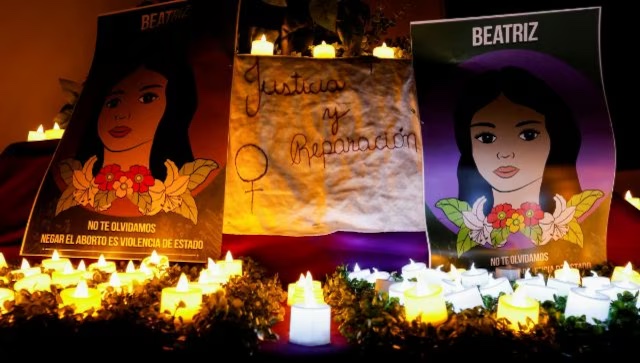
The IACHR, based in Costa Rica, will bring El Salvador to trial for alleged human rights violations and “torture” for keeping a woman named Beatriz carrying a non-viable fetus for nearly three months despite the risk to her health.
This week, the Inter-American Court of Human Rights (IACHR) will hear a case regarding the legality of denying a woman access to abortion services for the first time in its history.
A lady distinguished exclusively as “Beatriz” is emblematically facing the Focal American nation of El Salvador, which upholds a flat out prohibition on the system no matter what the hatchling’s wellbeing or any gamble to the pregnant lady.
The nation will be brought before the IACHR, which is based in Costa Rica, for alleged violations of human rights and “torture” for keeping Beatriz carrying a unviable fetus for nearly three months despite the risk to her health.
You might like to remove background images.
Adobe Photoshop by Taboola Sponsored Links Maria Antonieta Alcalde of the Ipas reproductive rights NGO, which is one of the plaintiffs, stated, “The fact that the Court has agreed to hear this case strongly indicates… that the denial of any health service, including those that are controversial such as abortion, is a human rights violation.”
Beatriz, who passed on in a car crash in 2017 after the case was documented, is reprimanding El Salvador for denying her an early termination notwithstanding specialists realizing she was conveying a non-suitable baby at extraordinary gamble to herself.
Abortion has been outlawed in El Salvador since 1998, punishable by up to eight years in prison as “a form of torture.”
Instead, courts frequently sentence women to sentences of up to 50 years in prison for aggravated homicide.
Beatriz was 20 when she became pregnant for the second time in 2013 and was diagnosed with an auto-immune disease. She had already had a difficult birth before.
According to court documents, Beatriz was informed that she could die if the pregnancy progressed, and the fetus was found to have a severe defect that prevented it from being viable.
She looked for lawful plan of action to be permitted to get a fetus removal yet saw her case tossed out by the country’s Protected Court.
The fetus died when she gave birth too early.
According to Gisela de Leon of the Center for Justice and International Law (Cejil), a rights non-governmental organization that is also one of the plaintiffs, the state “violated (Beatriz’s) rights to life and personal integrity” by requiring her to carry the fetus for 81 days while being aware that it would not survive.
According to De Leon, “We are claiming that the suffering to which she was subjected, in the knowledge that her right to life was at risk, is a form of torture.”
After Beatriz’s death, her brother Humberto, 30, withheld his name to protect his sister’s identity, said that the family decided to pursue the case so that “no other woman will go through what she went through.”
He added his sister was a casualty of a poor, underestimated childhood which causes “such circumstances happening to ladies since they don’t approach a framework that ensures conceptive wellbeing.”
Argentina, Colombia, Cuba, Uruguay, and a few Mexican states allow elective abortions in Latin America.
While it is outright prohibited in Honduras, Nicaragua, Haiti, and the Dominican Republic, it is permitted in certain circumstances, such as rape or health risks.
The majority of abortions are now illegal in several states across the United States.
Beatriz’s relatives and the doctors who treated her will testify before the IACHR.
Women are expected to gather outside the IACHR court building in San Jose and San Salvador, El Salvador’s capital.
The case will be heard over two days, and a decision is anticipated within approximately six months.